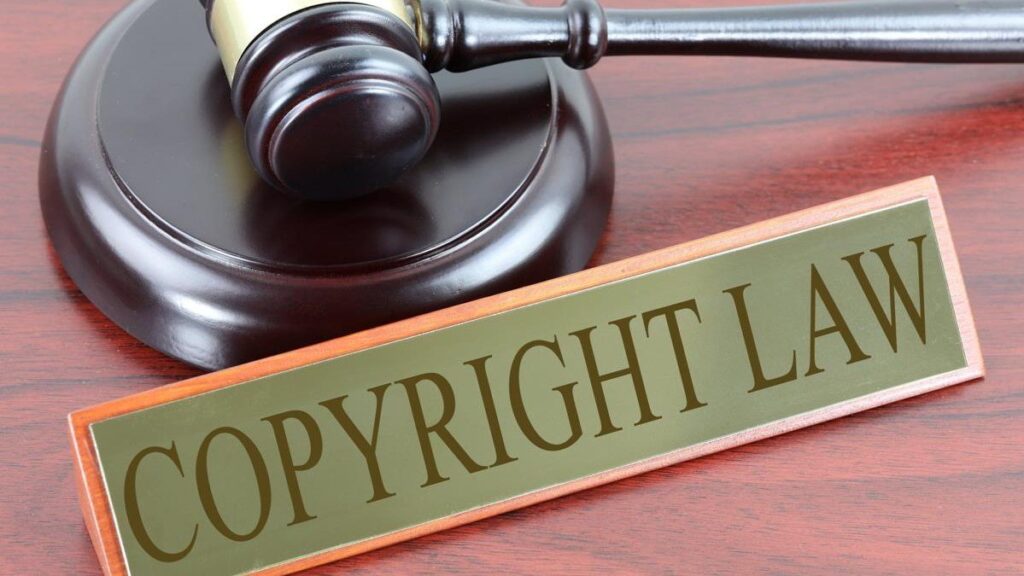Copyright ownership can be sold or exchanged, given as a gift, or donated to the public domain. Copyright ownership may be transferred during the owner’s life (inter vivos), or it may pass to the owner’s heirs at death.
Copyright Generally Transferrable as Personal Property
This basic principle is affirmed in § 201(d)(1) of the Copyright Act, which provides: “The ownership of a copyright may be transferred in whole or in part by any means of conveyance or by operation of law, and may be bequeathed by will or pass as personal property by the applicable laws of intestate succession.”
‘indivisibility’ under the 1909 Copyright Act.
The 1976 Act abandoned the concept of indivisibility of copyright ownership along with its more dubious ramifications. Section 201(d)(2) provides:
Any of the exclusive rights comprised in a copyright, including any subdivision of any of the rights specified by section 106, may be transferred as provided by clause (1) and owned separately. The owner of any particular exclusive right is entitled, to the extent of that rig ht, to all of the protection and remedies accorded to the copyright owner by this title.
Thus, a person who owns no more than an exclusive license to publicly perform a dramatic work or a musical composition (but not to make or sell copies) is nonetheless regarded as the “owner” of that right. It is that person who can properly bring an action for infringement of that particular exclusive right. § 501(b). The Copyright Act refers to the conveyance of either all rights or less than all rights as a “transfer,” and it eliminates the significance of characterizing a transfer as either an assignment or a license.

Under current law, what is important in connection with copyright transfers is whether the transfer is exclusive or nonexclusive. The influence of the old law, however, is still felt. For example, the Court of Appeals for the Ninth Circuit, incorporating doctrine developed under the 1909 Act, has held that the transferee of an exclusive right must, in order to make a valid retransfer of that right to a third party, give notice to and secure the assent of its own initial transferor. Gardner v. Nike, Inc., 279 F.3d 774 (9th Cir. 2003).
Transfer Requires Signed Writing
Section 204(a) provides that “a transfer of copyright ownership, other than by operation of law, is not valid unless an instrument of conveyance, or a note or memorandum of the transfer, is in writing and signed by the owner of the rights conveyed or such owner’s duly authorized agent.” Because § 101 defines “transfer of copyright ownership” to include both assignments and exclusive licenses, a grant of an exclusive license of any of the rights or subdivisions of rights in § 106 must be manifested in a signed writing if it is to be effective, by virtue of the copyright “statute of frauds” (a legal term referring to a law that requires a signed writing). § 204(a). The grant of a nonexclusive license—for example, separate grants to several production companies to perform a dramatic work—will be valid even without a signed writting (although, of course, the practicing attorney will routinely give or take such a license by written agreement). Such a transfer can often be inferred simply from the conduct of the parties, without any kind of writing. Effects Assocs. v. Cohen, 908 F.2d 555 (9th Cir. 1990) (short footage was prepared at request of motion picture producer; for lack of a writing, this was found to transfer to the latter an implied nonexclusive license to incorporate the footage, and distribute it, as part of the film).
Recording Copyright Transfers at the Copyright Office
In the interest of maintaining intelligible records relating to copyright ownership, the Copyright Office not only registers initial (and renewal) claims of copyright but also records “any transfer of copyright ownership or other document pertaining to a copyright,” under § 205(a) of the Copyright Act. Recording a transfer of copyright in a registered work provides constructive notice of the facts stated in the recorded document. Like the real estate recording system, copyright recordation will protect the transferee (recipient) of the copyright against subsequent conflicting transfers, even to good-faith purchasers. § 205(c), (e), (f).

Assignment of Rights to Future Technology
New technology and media formats can create interesting copyright assignment issues. Often, years after a valid transfer, the parties will dispute whether the grant was meant to embrace some new technology format. This issue first arose in grants of dramatization rights, just before the advent of motion pictures. It arose against when film rights were granted prior to the advent of television. More recently, there have been disputes about whether grants of film rights include the right to make and distribute DVDs, and whether magazine or book publishing rights embrace digital media. Since the contracts were made before the new technology was even known, let alone commercially widespread, it is difficult for the parties to properly define their intentions.
The court decisions do not form a consistent pattern. They often place more weight on contract analysis than on analysis of the Copyright Act. Some courts emphasize the lack of awareness of the new technology and the obligation of the drafter (usually the large media company) to make its intentions clear; E.g., Cohen v. Paramount Pictures Corp., 845 F.2d 851 (9th Cir. 1988) (music incorporated in motion picture, later distributed in videocassettes), other courts emphasize that new technologies will ordinarily be facilitated through a contract presumption favoring transfer of rights. E.g., Boosey & Hawkes Music Publishers, Ltd. v. Walt Disney Co., 145 F.3d 481 (2d Cir. 1998) (Stravinsky’s transfer of music rights for Disney film Fantasia, later distributed in videocassettes) (relying on Bartsch v. Metro-Goldwyn-Mayer, Inc., 391 F.2d 150 (2d Cir. 1968)).
Most recently, book publishers have been found not to have taken transfers of the right to publish in the form of electronic books, so that several major authors were held to have acted lawfully when conveying “e-Book” rights to digital publishers. Random House, Inc. v. Rosetta Books, L.L.C., 150 F. Supp. 2d 613 (SDNY 2001). The Supreme Court reached a similar conclusion in New York Times Co. v. Tasini, 533 U.S. 483 (2001). In Tasini, the Court interpreted § 201(c) to give to a freelance author, rather than to her newspaper publisher, the right to distribute articles online, in the absence of an express contract to the contrary.
More to read: How Insolvency Lawyers Can Help Protect Stakeholder Interests

